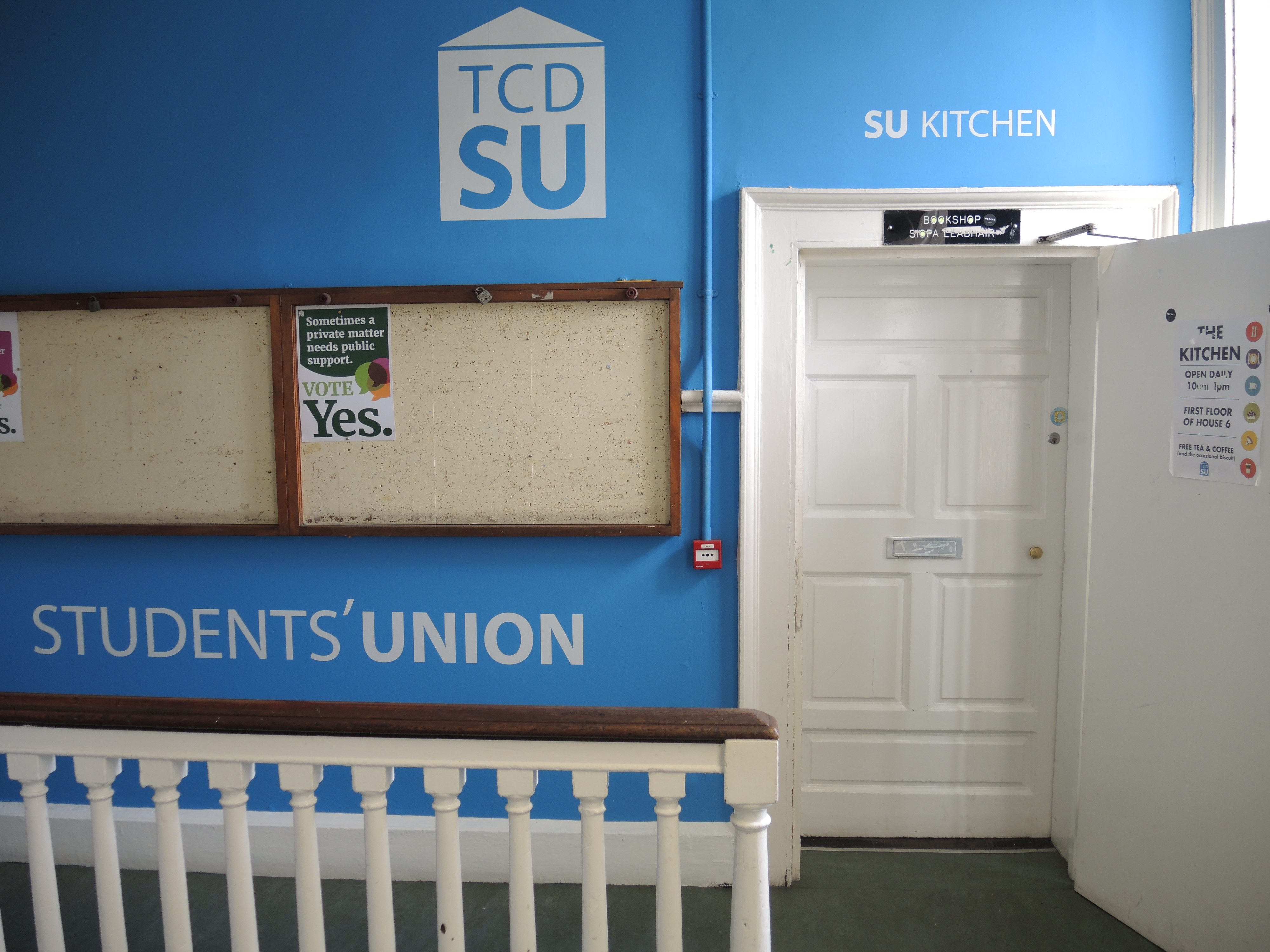Student engagement with Trinity College Dublin Students’ Union (TCDSU), or lack thereof, is a perennial problem – one exacerbated this year by the pandemic. Looking ahead into next year, the newly-confirmed candidates for the union’s next sabbatical team will need to consider to what extent they believe the union should be focusing on expanding its outreach and the steps they would need to take to achieve that.
A discussion brought to TCDSU Council last week highlighted some of the key issues around the varied views held by representatives about how engaged students are with the union and how important their engagement with the union is considered to be, including among prospective sabbatical officers.
Student disengagement with TCDSU was raised by Junior Fresh PPES class representative, László Molnárfi, who said that a “perception of elitism” has “long haunted” the union. A discussion followed on potential methods of re-energising engagement. Deputy STEM Convenor Bev Genockey, a candidate in the Education race, suggested that class reps ask their course to give their opinions on motions that reps will then vote on and having a video breaking down the structure of Councils. Dylan Krug, a Junior Sophister Environmental Science class rep running for Welfare and Equality Officer, said that “lowering the barrier to entry” for students could be key to increasing engagement.
Senior Sophister BESS class rep Ben Cummings, who is running for president, said that you “can’t force people to be engaged” with the union. Similarly, Education Officer candidate Daniel O’Reilly, STEM convenor, said that there are 18,000 students in Trinity and it’s “okay” if many of them are not interested in the union.
The most recent TCDSU referendum on amendments to its constitution saw only 652 Trinity students vote. When brought up at last week’s Council the low turnout was attributed to the referendum not being “interesting enough” to attract larger numbers. However, even referendums on topics that lend themselves to more widespread interest only see a small proportion of students voting. A referendum in 2018 on whether the union should support the Boycott, Divest and Sanctions movement against Israel, which was highly debated and saw the highest turnout in several years, still only received votes from just over 2,000 students.
In 2018, TCDSU held a referendum asking students whether or not they would like to give students the option to “opt out” of the union or whether membership should continue to be mandatory for all Trinity students. 49.96% voted against allowing students to opt out of TCDSU membership. Even Brexit had a wider margin. If students were not against mandatory membership of the union, they were not overwhelmingly in favour of it either.
The concerns around engagement can usually be seen playing out in the number of uncontested races during recent sabbatical elections. In 2017, four out of six races were contested by only one candidate. In 2018, there were three such races, two in 2019, and three again in 2020. This year, there has been a marked improvement, with thirteen candidates across six races, five of which have two or more candidates. Whether this year is an anomaly or the start of a change remains to be seen.
TCDSU President Eoin Hand outlined in his 2020 manifesto that he planned “to encourage student engagement with the union (…) using online media and face to face meetings”. Since Covid-19 has suspended face-to-face meetings, the union has focused on increasing its social media engagement. Communications and Marketing Officer Philly Holmes said at Council that student engagement has gone up this year, quoting higher numbers of online engagements and social media messages than previous years. However, social media is not necessarily the best indication of current student engagement, as Holmes has previously noted that TCDSU’s Facebook followers “may not even be current students”. Additionally, much of the union’s core communication to students outside of social media is in its weekly emails, which are often “dense” according to Holmes, and which many students do not regularly read.
Hand’s manifesto also said that he would “enable a non-judgmental, transparent dialogue between the SU, students and academic staff”, which has been made more challenging for the union by the physical distance between them and students this year. Another point raised at Council was that students living in Trinity Hall (Halls) who were raising concerns about what they’ve described as harsh ramifications for breaches in Covid-19 restrictions turned to a new campaign group – Trinity College Dublin Renters Union (TCDRU) – before looking to the union. TCDSU had not received any formal complaints from students, it said at Council, while the renters’ union had heard testimonies from multiple residents at its first meeting. The students’ union’s engagement problem is both one of awareness among students and also the willingness of students to reach out to them with problems.
Student disengagement is a problem for any student union. However, the last Council meeting highlighted the key questions for a union that predate this sabbatical team and will live on for future ones – how to engage students that are not interested, whether the union needs to focus on engaging those students, and how to reconcile different stances held among representatives.






